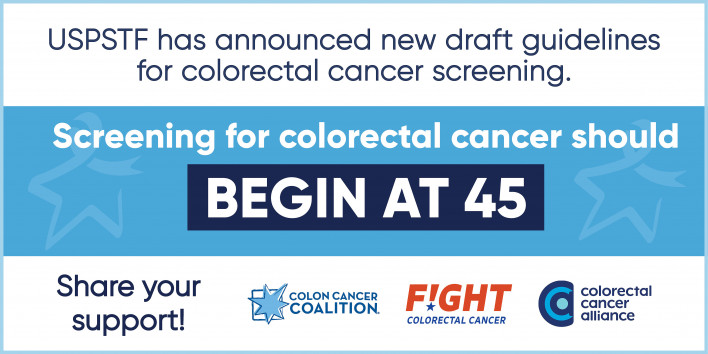By Maria-Paula
The latest recommendations from the U.S. Preventive Services Task Force is a significant change in the scope of screening for colorectal cancer.
The task force recommends initiating the regular screening for average risk age at 45 from 50 years as this would possibly save more lives through early detection. They also suggest that adults age 76 to 85 ask their doctor if they should be screened for the malignancy which reports higher risks of death among the Black American populace.
Symptoms and family history continue to guide diagnostic or screening exams in younger adults. Citations could change known ethnic differences in screening tests and outcomes, especially among Blacks and Native Americans, who already have the cancer scores worse than other racial groups.
The new recommendation is based on a systematic review report directly on insurance coverage and co-payment waiver as part of federal law. This could be reduced with an acceptable damage burden through diagnosis before age 50.
In relation to screening, reflecting both the effectiveness of the screening and the increased incidence of early onset, in addition to the potential benefits of screening a number of concerns and questions were initially raised about the implementation of population-based on colorectal cancer. Initiating population-based screening at this age is only one step in addressing early-onset of the disease.
Implementation could reduce access in medically under-served people, and expand capacity. It may simply lead to better outcomes in people with more underdeveloped dependence on colonoscopy for screening. Capacity in some communities take advantage of expanding the population eligible for screening whereby several approaches could be considered. While much of screening is opportunistically offered during doctor visits, proactive and population-based approaches at the system level could potentially help ensure equality in the detection of colorectal cancer.
Once health systems adopt the new recommendations, in addition to including age of detection and alerts to prompt doctors, they could use public relations to send reminders and testing opportunities directly to patients. The same population-based efforts should continue to increase screening rates in patients aged 50 to 75, as well as continuously working to improve equality of opportunity between ethnic groups and geographic Locations to improve on the newly expanded screening population.
Increased advocacy and the use of alternatives to colonoscopy screening, such as B. Screening, should be considered a stool test in those at low risk.
Although the task force recommends a variety of screening options, most screening tests in the United States are completed by screening colonoscopy. As the age range widens, health systems could take the opportunity to incorporate more stool tests for those at moderate risk.
Colorectal Cancer: Screening Age Lowered to 45



